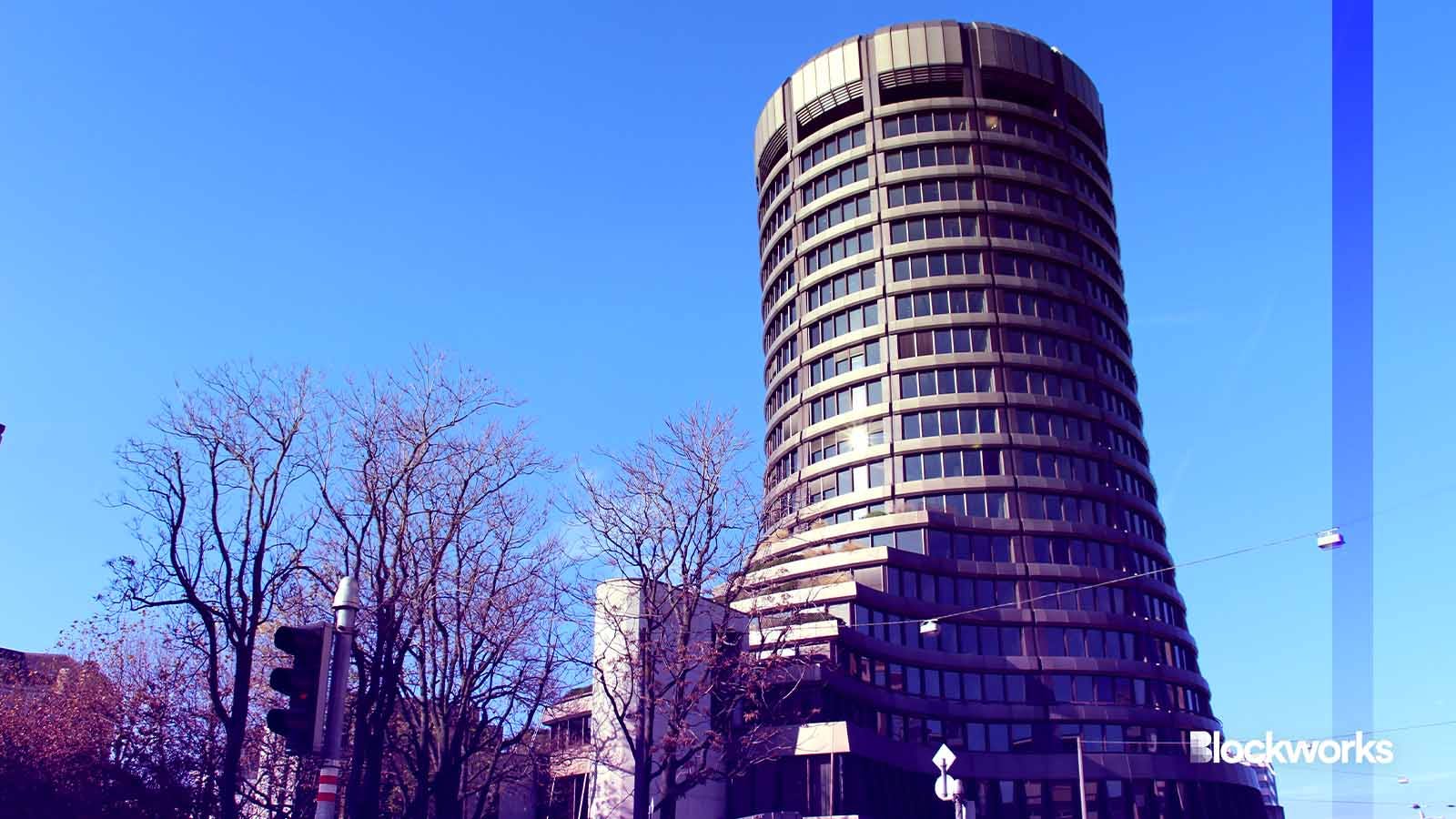Global bank regulator tightens rules for inclusion in top stablecoin ranking
Under the standards, stablecoins would be sorted into two buckets: Group 1b and Group 2

Bank for International Settlements | corno.fulgur75″Basel – Bank für Internationalen Zahlungsausgleich-Tower Building" (CC license)
The Basel Committee proposed adjustments to banks’ exposure to crypto assets.
The standards were first published in December of last year. A comments period on the changes is open until March 2024.
“The requirements determine whether the stablecoins to which banks may be exposed will be eligible for inclusion in the Group 1b category of crypto assets, and thus benefit from a preferential regulatory treatment,” Basel wrote.
The Basel Committee oversees global banking regulations and its membership includes a number of officials from central banks from all over the world.
Read more: Like crypto or not, central banks need to prepare, BIS innovate head says
Stablecoins that qualify for the 1b rating are subject to the “existing capital framework,” while those that don’t qualify — Group 2 stablecoins — face “a new highly conservative capital treatment.”
Under the December 2022 framework, there are two key parts for a stablecoin to fall under 1b: ”the appropriate composition of a stablecoin’s reserve assets” and “statistical tests” that can identify “low-risk stablecoins.”
The risk management framework would assess the market risk, credit risk, liquidity risk and concentration risk.
The proposed updates to the framework include that stablecoins pegged to currencies must have reserve assets that include short-term maturities and “high credit quality.”
Additionally, “the reserve assets have a proven record of relative stability of market terms…even during stressed market conditions.”
There must be sufficient liquidity for reserve assets to meet “instant” redemption requests by the holders.
“Under the proposals banks would also be required to perform due diligence to ensure that they have an adequate understanding of the stabilization mechanisms of stablecoins to which they are exposed and how effective they are,” Basel wrote.
“As part of this due diligence, banks would be required to conduct statistical or other tests demonstrating that the stablecoin maintains a stable relationship in comparison to the reference asset.”
Read more: Galaxy, DWS and Flow Traders eye stablecoin launch on Ethereum, Solana
Specifically for 1b stablecoins, the bank then must perform the due diligence on a “regular basis,” with the edit suggesting monthly, quarterly or annual testing of the stabilization mechanism.
Basel isn’t the only entity interested in stablecoins. Earlier this week, the S&P Global Ratings announced its first assessment of eight stablecoins. Tether, USDC, and Frax were included on the list, with Tether getting a “constrained” evaluation and Frax labeled as “weak,” but with USDC receiving a strong assessment.
“The consistent feedback was that the market has no transparency or insight into the inherent risks of the different stablecoins. Although the market is concentrated, as the DeFi ecosystem grows, we foresee a rising universe of coins and use cases,” S&P Global Ratings senior director Mohamed Damak told Blockworks.
Start your day with top crypto insights from David Canellis and Katherine Ross. Subscribe to the Empire newsletter.





